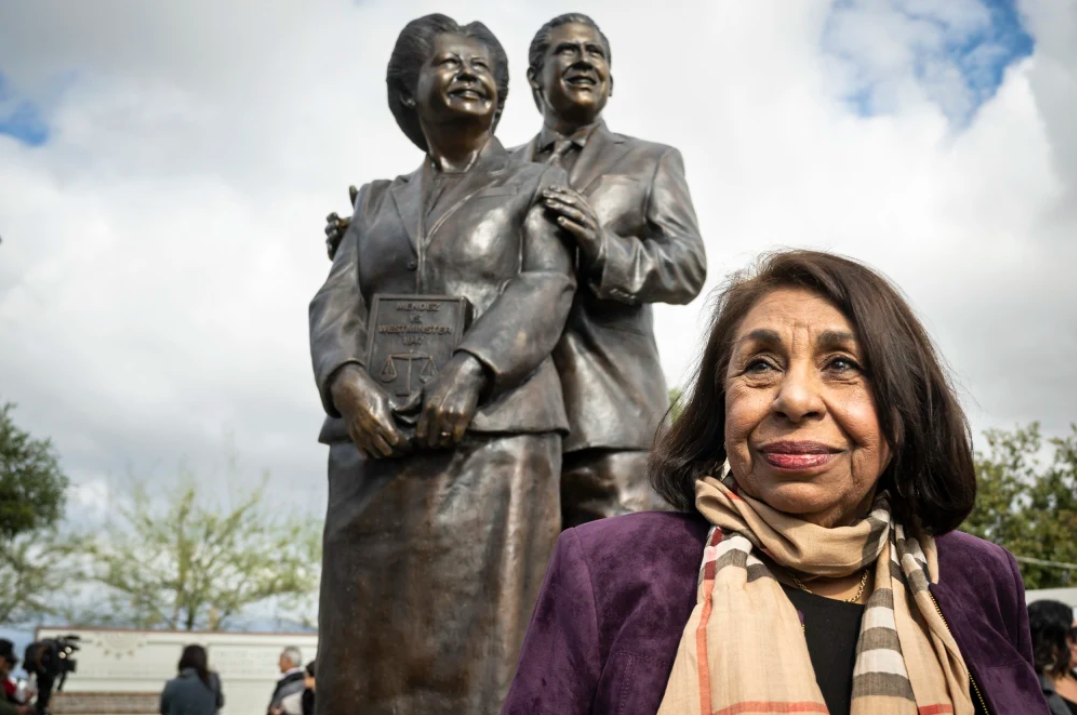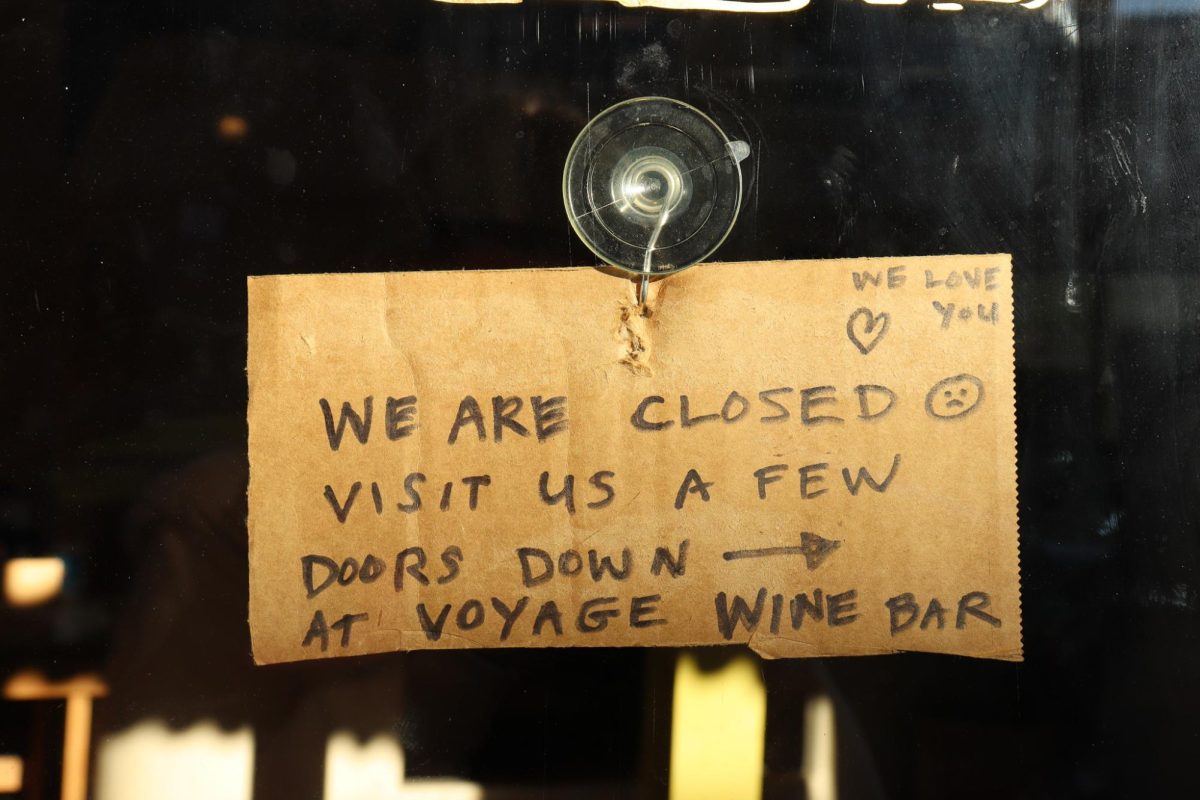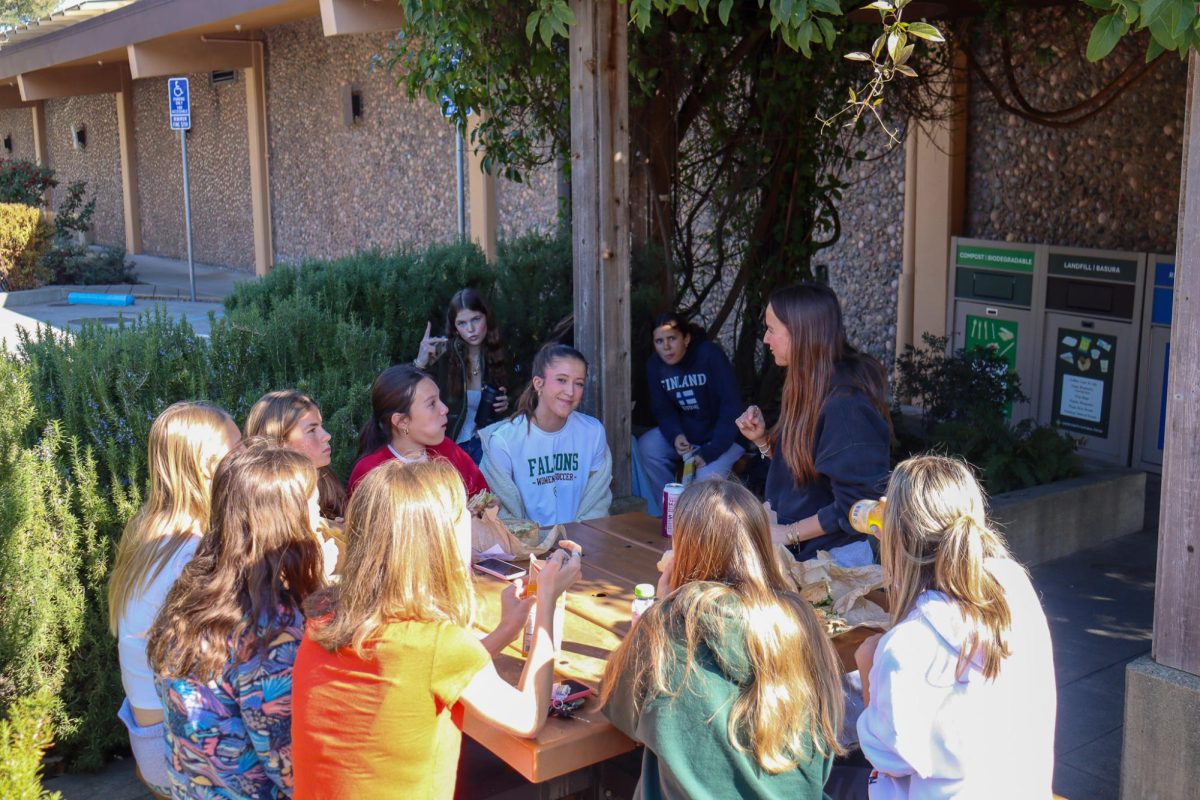On Sept. 20, 2024, California Gov. Gavin Newsom signed Assembly Bill (AB) 1805 into law, requiring statewide history and social science curriculum standards to include the landmark Supreme Court case Mendez v. Westminster School District of Orange County. The law, which goes into effect Jan. 1, 2025, aims to provide students with a more well-rounded exposure to civil rights topics.
Mendez v. Westminster was a 1947 Supreme Court case that challenged separate schools for Mexican-American students in the Westminster School District of Orange County, California.
Sylvia Mendez, the daughter of Mexican and Puerto Rican immigrants, lived in Orange County, California in 1944. When she was eight years old, Mendez’s parents attempted to enroll her and her brothers at 17th Street School, a local elementary school within Westminster School District of Orange County. However, the school denied them admission and told them to attend a school specifically designated for Mexican American students. Mendez’s father, Gonzalo Mendez, decided to take legal action, and with the help of civil rights attorney David Marcus, Mendez and four other Mexican American families filed a class action lawsuit against four Orange County school districts.
In an interview with the United States Hispanic Leadership Institute (USHLI) in 2018, Sylvia Mendez recognized that the case had value to the entire Mexican American community, not just her family.
“My parents weren’t just fighting for us… [the district] said, ‘Gonzalo if you leave- please stop this lawsuit or whatever you’re thinking about. Your children can go to this school,’” Mendez said. “And my father said, ‘No! I’m not going to stop this [lawsuit]! I’m not just fighting for my children, I’m fighting for all the children!’”
American legal standards consider Mexican-Americans to be white, so the plaintiffs didn’t claim racial discrimination, but instead discrimination based on ancestry and “language deficiency,” citing the 14th Amendment. The defendants, however, argued that language deficiency was grounds for segregation and that Mexican American children required separate schools and special instruction in English.
In 1946, U.S. District Court Judge Paul McCormick ruled in favor of the plaintiffs, requiring the school districts to admit students regardless of their ancestry. In his decision, McCormick disputed Plessy v. Ferguson’s 1896 ruling that racially “separate but equal” facilities did not violate Constitutional law. This “separate but equal” method was later illegalized in the Brown v. Board of Education case of 1954, but Judge McCormick was ahead of his time, emphasizing the importance of equality in all schools regardless of origin.
“A paramount requisite in the American system of public education is social equality. It must be open to all children by unified school associations regardless of lineage,” McCormick wrote in his decision.
The school districts appealed, but the U.S. Court of Appeals upheld Judge McCormick’s ruling. Just two months later, California Gov. Earl Warren signed a bill ending segregation, making California the first state to desegregate its schools.
The case set the precedent for civil rights lawsuits to come, including the Brown v. Board of Education case of 1954, during which Warren served as Chief Justice. Thurgood Marshall, who represented the plaintiffs in Brown v. Board of Education, used arguments from Mendez v. Westminster to win the case and effectively end school segregation nationwide.
Now, almost 80 years later, the case is finally recognized as a turning point in the history of civil rights. President Barack Obama awarded Sylvia Mendez the Presidential Medal of Freedom in 2011, and AB 1805 will ensure that the case is not forgotten.
“I’m so happy that [Newsom] signed the bill. The Mendez family has been working for this for over 20 years. It’s been a long struggle for everybody who has helped, and we’ve finally completed our task,” Mendez said in an interview with the Los Angeles Times.
Archie Williams social studies teacher Mike Kelemen plans to incorporate Mendez v. Westminster into his U.S. History class by building it in with other civil rights-related cases and laws that he teaches. He notes that some teachers may feel frustrated by the prospect of yet another box to check off on their curriculum, but that the case doesn’t require more than a mention.
“Many teachers don’t like to be micromanaged about every little thing that they teach… [but] this is something that does not have a major impact on what we teach. It’s just an additional thing that would take a couple minutes extra to discuss in class, and I think it will be more interesting, especially to California students,” Kelemen said.
Although students may not study Mendez v. Westminster in depth, Archie Williams English teacher LoRayne Reza believes that both students and larger communities will draw value from learning about the case.
“When we don’t learn about cases like Mendez v.Westminster, or other fights that have happened, we’re actually erasing these resilient communities, these communities that really came together [for this case],” Reza said.
Because Mendez v. Westminster took place in California, it provides a much more relatable angle to students learning about civil rights cases. The case also serves as a reminder to students that California was not exempt from segregation.
“A stereotype [that] a lot of times students have is… the southern states were the really racist ones. In the north and California, they were the quote ‘nicer ones.’ And I think this [case] just underscores that [and proves] that discrimination and racism were commonplace across the whole U.S.,” Kelemen said.
The law, while focused on a case that occurred in Orange County, holds relevance in Marin County because it offers an often underrepresented perspective on history.
“Especially in Marin, where the population is very white, I think that learning about other people’s perspective is very important… and I think that by looking at other stories and others’ experiences, you can learn how not everyone’s privileged,” said Archie Williams senior Siena Michelson.
Mendez v. Westminster is an example of a discriminated ethnic group fighting back against strictures that prevented them from receiving a quality education. Reza believes that learning about Mendez v. Westminster will set the precedent for students to stand up for their own values and communities.
“We’re standing on the shoulders of people who have done amazing work, and we need to be the shoulders for future generations. And so every single time students get to study these kinds of things, it’s proving [that] we didn’t come from this meek group of people who don’t know how to fight. We’ve all known how to fight for centuries. We’re just not told that,” Reza said.
Mendez v. Westminster is just one of many stories of resistance in marginalized communities. While the case may not impact everyone, its immortalization in California education demonstrates a step towards equal representation in history.
“[My mother] said, ‘Sylvia, somebody has to go out there and talk about this story. This is [the] history of the United States and you have to go out there and start talking about these brave Latinos how they stood up against the establishment and fought, and how they won, and how California was the first state to be integrated. History of California, it cannot be forgotten. And we did it. We fought, and we won,’” Mendez told USHLI.









